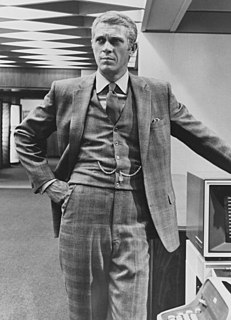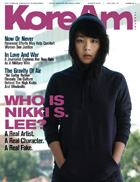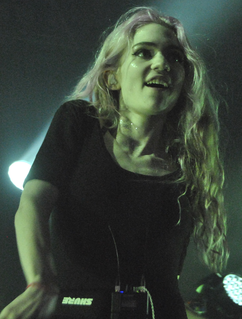A Quote by Steve Carell
People just like to be on camera. There's a huge desire to be in front of the camera, and once there, people will say and do almost anything. It's sort of a drug, and I think people get addicted to it.
Related Quotes
I don't like people who are hypocritical, who pretend to be nice, particularly in show business when they're nice on camera, and then off camera they're absolutely appalling to the makeup people, or the waitress in a restaurant, you know? I don't like - I can't bear those kind of people. So I like people who are, you know, up front in your face.
I'm always going to hear people make that connection and I've just accepted it. It's alright. I'm just happy that I get to do my own thing now. I learned a lot from the show [the Voice] as far as being in the TV world and being in front of the camera, which is really great because I'm not as nervous in front of the camera as I was before.
I love to just listen and watch. I could happily watch a security camera at a store. Often during a day I'll see a guy selling pretzels or an argument that somebody's having on a stoop and I'll think, "Oh I wish I had my camera, I wish I could capture this moment." There's something about people being people and interacting that can be so beautiful when it's framed by a camera. That desire to capture people as they are, and the stubbornness to keep going when they don't necessarily want you to capture them being who they are, are key.
I don't like to put too much effort into things. I find that once you get involved with special effects it is no longer about what is happening in front of the camera and I really want to concentrate on what is happening in front of the camera, like the man apparently peeing on the surface of the screen.
I like working on one - camera. This is not false modesty, but I don't think I'm very good at three - camera. And it's not that I'm nervous, but I just sort of feel like my collar is too small, or my clothes don't fit. I don't understand what that is. And I don't understand the format: There's an audience in front of you that you're playing to, but there are also these cameras.
This is going to sound crazy, especially in America where there is a total inflation of the word "love," but in a sense you have to love the people in front of the camera. There has to be trust between the one who is behind the camera and the people on the other side, so that they can relax. They have to feel they are safe, and that way they don't have to pretend just because they are scared.
It's just a matter of who you are and how you talk to people. Your subjects will trust you only if you're confident about what you're doing. It really bothers me when photographers first approach a subject without a camera, try to establish a personal relationship, and only then get out their cameras. It's deceptive. I think you should just show up with a camera, to make your intentions clear. People will either accept you or they won't.
We have African-Americans and black people getting behind the scenes more and more, we get true black images in television and film...because we have black people behind them. They can tell stories from those points of view and bring to life those characters who have yet to be shown. As long as we have people behind the camera just as much as in front of the camera doing the work, then we'll always be good.
I don't want to carry big things around with me. I'm lazy. The snapshot camera, you just carry it around and take the picture. You don't need to think about anything. People in the street are not going to wait for you with a big camera. They would freak out. With a snapshot camera, they are comfortable.



































